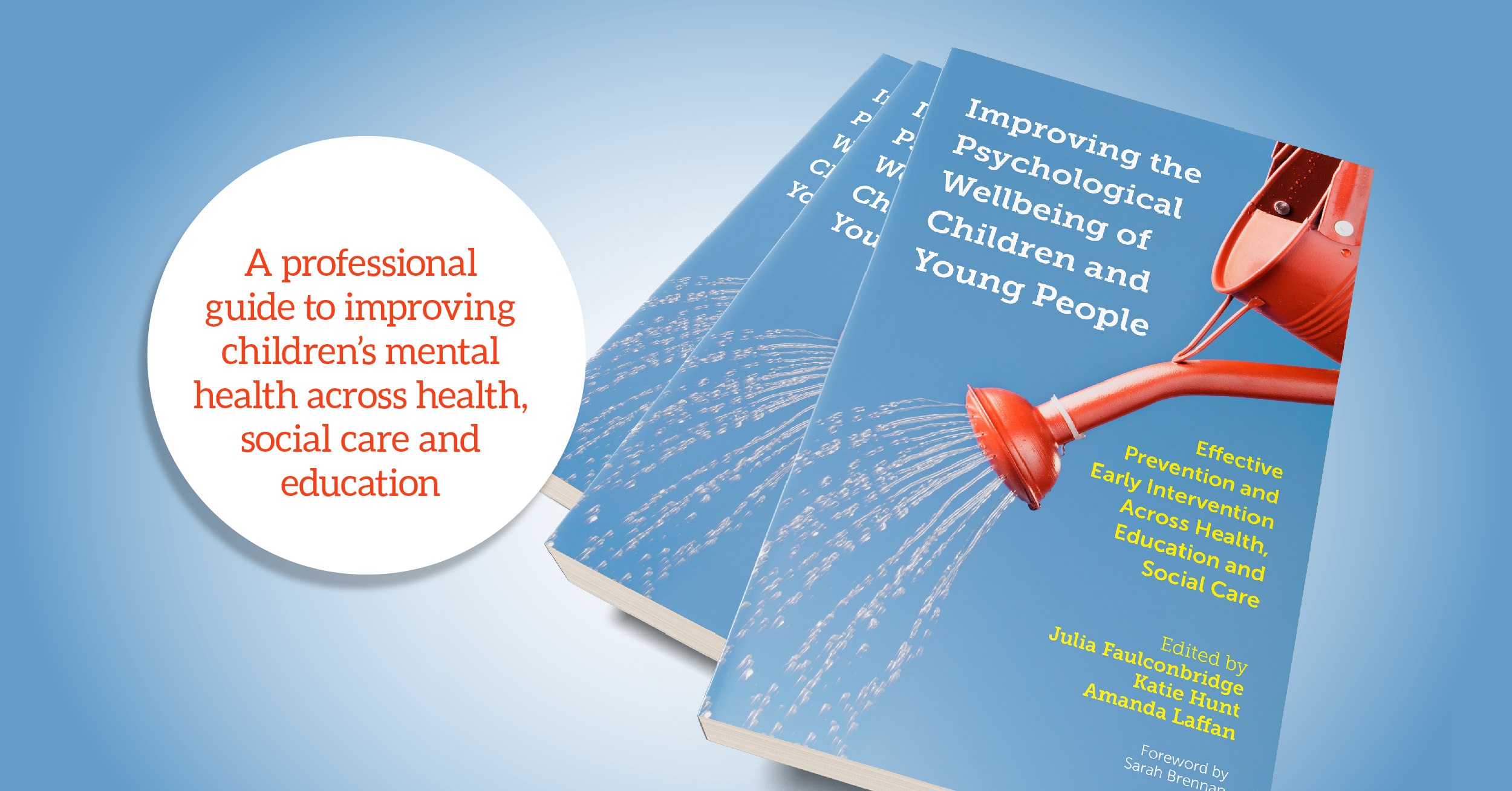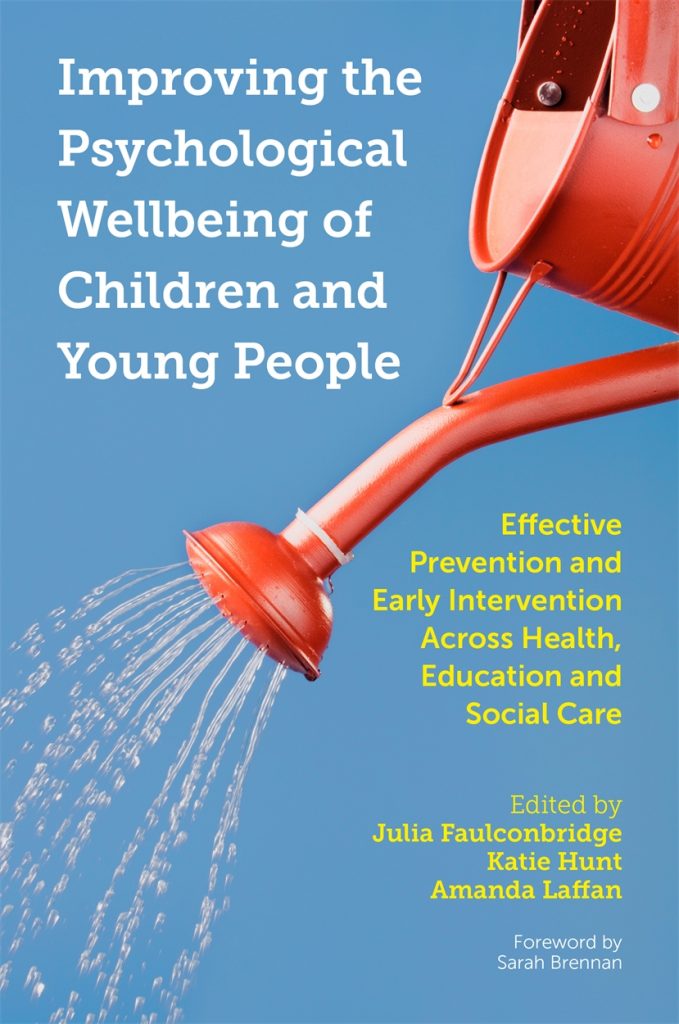
Over recent years, every survey has indicated both an increase in psychological distress amongst children and young people and a serious lack of capacity in the services to help them. 50% of lifelong mental health problems develop before the age of 14, with 75% developing by 25 years. Estimates vary but it is widely agreed that at least 10% of 15-16 year olds have a “diagnosable mental health condition” and, of those, only 25-40% receive input from specialist mental health services, if at all.
Only 6% of the mental health budget goes to this age group and that is mainly spent on Child and Adolescent Mental Health Services (CAMHS) dealing with the problems that have become serious, complex and long-standing. National policies, including the recent Government Green Paper, are primarily focused on services to help those children and young people who have already developed difficulties. Similarly, much discussion on mental health focuses on the individual, what is “wrong” with them, rather than taking an ecological approach that seeks to understand the individual’s difficulties as arising within their familial, cultural and societal contexts.
So, we are missing some of the key questions. Why is the mental health of our children and young people deteriorating? What should we be doing to prevent problems, build resilience and nurture psychological wellbeing? We know many of the risk factors from poverty, trauma, maltreatment and social isolation through to bullying and the impact of excessive testing and unrealistic academic pressures, but where is the action to address these?
In our book Improving the Psychological Wellbeing of Children and Young People we consider what we can do, as a society, to raise children to be psychologically healthy and resilient people, able to enjoy productive lives and manage the difficulties and challenges which will inevitably occur.
What would it mean to have a model of child services that truly pays attention to helping the next generation to grow up to have greater psychological wellbeing and be more resilient, rather than directing the majority of resources to trying to help after things have gone wrong?
At a societal level, we need to invest in our children, their families and carers. In addition to the prevention of so much suffering and unhappiness, such a model would also save money. The latest estimate from the Centre for Longitudinal Studies in 2015 calculated that, in addition to the costs of providing health and social care, the long-term impact of poor childhood mental health is believed to be costing the UK a total of £550 billion in lost earnings. Investing in children means policies that, for example:
- Radically reduce the incidence of poverty by supporting families, especially those where parents may be struggling to find work that pays sufficiently or at all
- Address the housing crisis so that children are no longer living in unsafe, unsanitary conditions on insecure tenancies
- ‘Green’ local neighbourhoods, making them safe places for children to play and for teenagers to spend time in
- Tackle discrimination and racism and build increased community cohesion
- Provide schools with the resources to develop a wide range of creative, sporting and other non-academic activities with and for the children and the local community
- Resource social care to support families as soon as there are problems rather than most funding being spent on taking children into care
- Listen to children and young people and ensure their voices are heard and influence the development of the society around them.
At a service level we advocate for a model of local Psychological Health and Wellbeing Services (PHWBS) that are built from the community up and aim to achieve integrated provision, including specialist services like CAMHS, across health, education, social care and the voluntary sector.
PHWBS require joint working, integrated pathways and cross-service training and consultation, with the primary aim being to support families and promote healthy psychological development rather than a narrower focus on managing or treating problems. As such, services are focused on people rather than problems. They would support all families (a general practice model) whilst also maintaining a strong focus on the children and families that are most in need and most vulnerable.
It can all feel very daunting, especially when everyone connected to the child mental health agenda is operating under unreasonable pressures, yet there are many examples of this work being done, from Early Years through to Physical Health and Criminal Justice. The book provides practical guidance and shows what can be done at a service level and we hope that it will inspire policy makers and commissioners to take the leap into creating a new vision of how we achieve psychological health and wellbeing. To do so requires wider perspectives both on how we understand mental health and wellbeing and how we develop psychological interventions that go beyond the individual to the family, community and society.
The above blog is by author Julia Faulconbridge and written for World Mental Health Day, fittingly, the theme this year is ‘young people and mental health in a changing world.’
 Julia Faulconbridge is a Consultant Clinical Psychologist and Chair of British Psychological Society’s Division of Clinical Psychology . She represented BPS on the Government Taskforce on Children and Young People’s Mental Health and Wellbeing.
Julia Faulconbridge is a Consultant Clinical Psychologist and Chair of British Psychological Society’s Division of Clinical Psychology . She represented BPS on the Government Taskforce on Children and Young People’s Mental Health and Wellbeing.
Katie Hunt is a Consultant Clinical Psychologist and Paediatric Clinical Neuropsychologist, specialising in children with special needs and neurodevelopmental difficulties. She is Chair of the DCP Faculty for Children, Young People and Families.
Amanda Laffan is a Clinical Psychologist working in Paediatric services. She was formerly Project Officer for the DCP Faculty for Children, Young People and their Families, focusing on improving psychological services for young people.
Improving the Psychological Wellbeing of Children and Young People: Effective Prevention and Early Intervention Across Health, Education and Social Care is a professional handbook on promoting positive mental health in children and young people through prevention and early intervention programmes. Written by experts in their field, this concise and authoritative guide envisages a new model for mental health care, promoting emotional resilience and psychological well-being throughout a child’s life.
Published 21st October 2018
If you would like to read more articles like this and get the latest news and offers on our mental health books, why not join our mailing list? We can send information by email or post as you prefer. You may also be interested in liking our Social Work, Mental Health and Health Care Facebook page.
This site was… how do I say it? Relevant!! Finally I’ve found something
which helped me. Thanks!